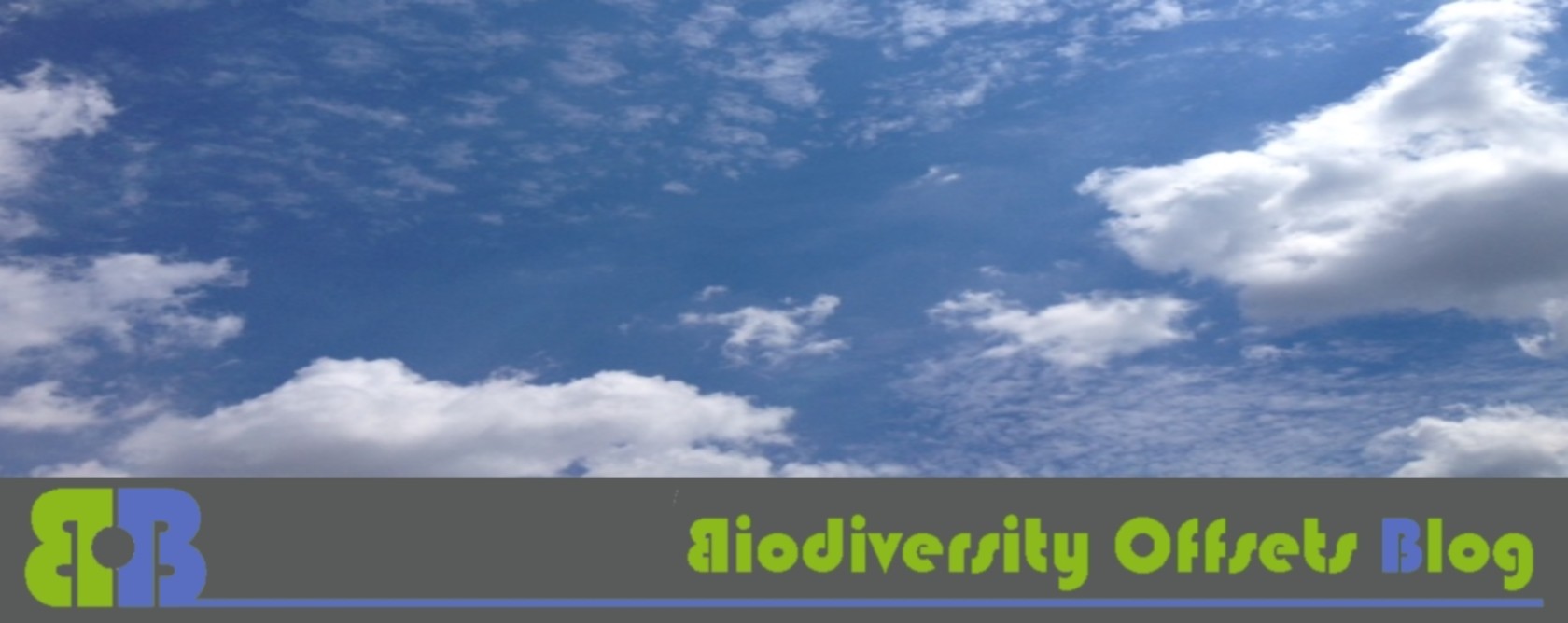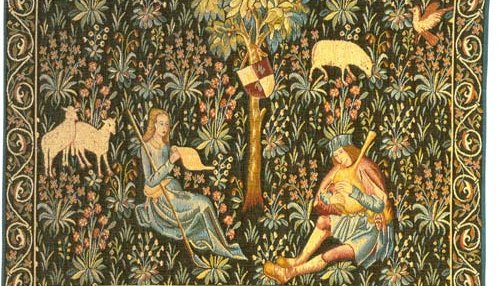This is the first part of a guest post series by Nuno Gaspar de Oliveira who works as.consultant and advisor in Esporão, a portuguese main wine and olive oil company, in the area of Strategic Management for sustainability using ‘Business Ecosystems’ models,
This guest post has previously been published on LinkedIn. It is the expression of the author’s thoughts and experiences and as such is acknowledged as a fruitful contribution to the discussion on biodiversity offsets. If you want to react or clarify your own position (underpin or disprove), please leave a reply below!
In terms of nowadays economics way of thinking, one of the striking features of modern growth models is their silence about the natural foundations of economic production. Capital goods and human labour combine to produce commodity output, but no land is required as a site, no materials are needed from which to form commodities, and no energy is required to drive the process of commodity production and exchange (e.g., England, 2000).
But how did this happen? Why is the XXIst century economy still so detached from its true natural foundations and so focused on the pure financial outputs? Were there no warnings along the road? Apparently, there were aplenty, even since the early times…
Let’s begin with Socrates, the ancient Greek philosopher (470 BC-399 BC), who was known for avoiding any written legacy forged by his own hand. The Philosopher believed that nothing should ever be carved in stone. Oddly enough, he was the son of a stone carver and learned the trade himself. One of the main points was that knowledge was in constant transformation and the seeking of the true meaning of words and expressions should be the endeavour of the knowledge seeker. The words of Socrates were ‘carved’ howsoever by his contemporary fellows, namely Plato, Xenophon and through the plays of Aristophanes. The alleged founder of western rationalism was not indifferent to the quest on the deep meaning of nature and the vital importance that nature plays in human existence and wellbeing:
“He is richest who is content with the least, for content is the wealth of nature.”
The Roman civilization was one of the influent forces that still support nowadays political and economic thinking. In practical terms, and considering natural capital, they have created the public trust doctrine that traces its roots to the Institutes of Justinian in Roman Law, which declared that there are three things common to all people: air; running water; and the sea and its shores (e.g., Ruhl, 2006). But this problem is far from being something only discussed in ancient Greece, revolutionary periods or modern day academia and History is full of long lost forgotten tales, but some still emerge to our days.
One of the most interesting phases in the history of western European civilization is the early Islamic period, one of intense philosophical development beginning in the early IXth century and lasting until the XIIth century. The period is known as the Islamic Golden Age, and the achievements of this period had a crucial influence in the development of modern philosophy and science (e.g., Sharif, 1966). Perhaps due to resource scarcity in most Islamic nations, there was an emphasis on limited, and some claim also sustainable, use of natural capital, i.e. producing land. Muhammadis considered a pioneer of environmentalism for his teachings on environmental preservation (Nomanul Haq, “Islam”). His hadiths on agriculture and environmental philosophy were compiled in the “Book of Agriculture” of the Sahih Bukhari, which included the following saying:
“There is none amongst the believers who plants a tree, or sows a seed, and then a bird, or a person, or an animal eats thereof, but it is regarded as having given a charitable gift [for which there is great recompense].”
Also during the lower Middle Ages, between the VIIIth and IXth centuries,Charlemagne, one of the most discussed political leader of all times, debated with the problem of providing a price to natural capital. Charlemagne promoted one of the first attempts for creating a common agricultural market based on natural capital within Europe, inspired by his awareness of how restrictions derived from land use management would promote or hinder new developments affecting economic and social conditions. Although scholars are divided on the import of his actions, the evidence suggests that he was concerned with improving the organization and techniques of forestry and agricultural production, establishing a monetary system better attuned to actual exchange operations and corresponding to the actual value of the transaction (adapted form Bulfinch, 2004).
A few centuries later, one of the most iconic kings of Portugal, Dinis (1279–1325), based his vision of improving the economy and reducing the power of the nobility and the church by encouraging forestry plantation and the fuller development of the country’s agricultural resources. He also showed great concern for shipbuilding and for the extension and protection of commerce. This was the launch for a natural capital based strategy for sustainability, and also a main economic driver for the Portuguese expansion era known as ‘The Discoveries’
But at the beginning of the late Middle Ages, during the Medieval Period, One of the major problems concerning natural capital is the rights of property and private appropriation of public goods and services. Whether in the case of land or intellectual property, the transformation from a right-to-benefit into outright ownership was a gradual one. Land ownership (and indeed all forms of ownership) says more about our perception of the world than about the nature of the thing owned (e.g., Eisenstein, 2007).
The transition from the early days when ownership of land was as unthinkable as ownership of the sky, sun, and moon, to the present day when nearly every square foot of the earth is subject to ownership of one sort or another, is really just the story of our changing view of ourselves in relation to the universe (idem). The ending of serfdom in late medieval Europe is a case in point. Before feudalism gave way to a money economy and the commons migrated into private hands, land was generally not a fungible asset. Lewis Hyde (2009) wrote that:
Whereas before a man could fish in any stream and hunt in any forest, now he found there were individuals who claimed to be the owners of these commons. The basis of land tenure had shifted. The medieval serf had been almost the opposite of a property owner: the land had owned him. He could not move freely from place to place, and yet he had inalienable rights to the piece of land to which he was attached. Now men claimed to own the land and offered it rent it out at a fee. While a serf could not be removed from his land, a tenant could be evicted not only through failure to pay the rent but merely at the whim of the landlord.
The introduction of the notion of private property was latter addressed by Rousseau in his dilemma around mankind’s inability to deal with the responsibility of managing both its and nature’s interests. The Franco-Swiss philosopher, a major figure of the Enlightenment period and whose ideas influenced the French Revolution wrote in masterpiece ‘A Dissertation on the Origin and Foundation of the Inequality of Mankind’ (1754):
The first man who, having enclosed a piece of ground, bethought himself of saying This is mine, and found people simple enough to believe him, was the real founder of civil society. […] Beware of listening to this imposter; you are undone if you once forget that the fruits of the earth belong to us all, and the earth itself to nobody.
To be continued…
References (so far)
Bulfinch, T. (2004). Bulfinch’s Mythology: The Age of Chivalry and the Legends of Charlemagne. Digireads. com Publishing.
Eisenstein, C. (2007). The Ascent of Humanity. Panenthea Press.
England, R. W. (2000). Natural capital and the theory of economic growth. Ecological Economics, 34(3), 425–431. doi:10.1016/S0921-8009(00)00187–7
Hyde, L. (2009). The gift: Creativity and the artist in the modern world. Random House LLC.
Ruhl, J. B. (2006). Background Principles of Natural Capital and Ecosystems Services-Did Lucas Open Pandora’s Box, The. J. Land Use & Envtl. L., 22, 525.
Sharif, M. M. (Ed.). (1966). A history of Muslim Philosophy (Vol. 2). O. Harrassowitz.

